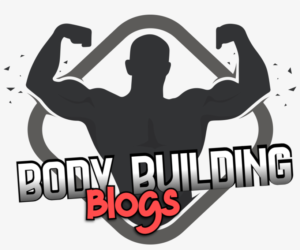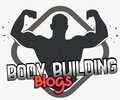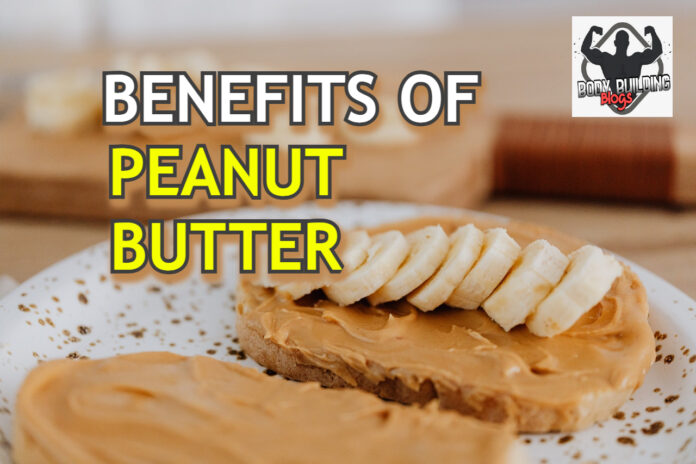The majority of people associate bodybuilding nutrition with foods like chicken breast, rice, eggs, and protein shakes. But what if I told you that one of the most underappreciated yet practical foods in a bodybuilder’s diet is probably already in your kitchen? Peanut butter, indeed.
This subtle spread is a nutrient-dense powerhouse that helps bodybuilders meet their calorie needs, promote muscle growth, and enhance recovery. There’s more to it than comfort food. The main advantages of peanut butter for bodybuilding will be covered in this blog, along with how much to consume based on your fitness objectives.
Peanut Butter’s Nutritious Profile
Let’s examine what initially makes peanut butter so valuable before delving into the advantages. A typical 2-tablespoon (32g) portion of natural peanut butter offers approximately:
- 190–200 calories
- 7–8 grams of protein
- 16 grams of fat, mostly unsaturated, healthful fats
- 6–7 g of carbohydrates and 2 g of fiber
- Micronutrients include things like zinc, phosphorus, potassium, magnesium, vitamin E, and B vitamins.
Peanut butter is the perfect bodybuilding snack due to its high nutrient density, especially for people who need sources of protein, calories, and healthy fats.
The Benefits of Peanut Butter for Bodybuilding
1. Rich in Protein to Aid in Muscle Repair
Bodybuilding is built on protein. Amino acids are necessary for the growth and repair of your muscles after vigorous exercise. Peanut butter has a healthy 7–8 grams of protein per serving, which makes it a great supplemental protein source even though it doesn’t have as much as whey or chicken.
2. Good Fats for the Production of Hormones
The significance of fats is frequently overlooked by bodybuilders. Monounsaturated and polyunsaturated fats, two essential peanut butter fats, aid in the synthesis of testosterone, which is necessary for muscle growth, recuperation, and general performance.
3. High in Calories to Gain Weight
Eating enough calories is one of the most difficult aspects of bulking. That issue is resolved by peanut butter, which is small but surprisingly high in calories. There are almost 200 calories in two tablespoons. Adding a spoonful or two to shakes, oatmeal, or sandwiches is an easy way for bodybuilders who have trouble eating to get more calories.
4. Packed with Micronutrients
Zinc, potassium, phosphorus, and magnesium are necessary for energy production, muscle growth, and recovery. These micronutrients, which improve athletic performance, are found naturally in peanut butter.
5. Offers Vitality for Exercise
Peanut butter’s moderate carbohydrates and healthy fats provide you with long-lasting energy. Unlike sugary snacks that cause you to crash, eating it before working out can provide you with a consistent energy boost.
6. Dietary Versatility
Peanut butter is incredibly versatile, unlike many bodybuilding foods that can feel monotonous. Bread, oats, fruits, shakes, and even savory foods go well with it. This facilitates maintaining a regular diet.
Peanut Butter’s Advantages for Bodybuilders
1. Encourages the Growth of Muscle
Peanut butter contributes extra calories and amino acids that promote muscle hypertrophy when paired with a high-protein diet. Hard gainers who have trouble eating enough food will particularly benefit from it.
2. Promotes Healing
Protein, fats, and micronutrients work together to speed up the recovery process after exercise. Peanut butter contains potassium and magnesium, which help lessen cramping and soreness in the muscles.
3. Assists in Sustaining a Healthy Weight
Peanut butter’s satiating fats and fiber help bodybuilders in a cutting phase feel fuller for longer while still getting vital nutrients.
4. Promotes Heart Health
For endurance training, cardiovascular health is essential. Even in the face of high-calorie diets, the monounsaturated fats in peanut butter help lower cholesterol and preserve heart health.
5. Benefits for Active Sportsmen
Peanut butter is quick and portable, and it doesn’t need to be cooked like fish or chicken. It is a time-efficient snack that bodybuilders with busy schedules can rely on.
Can a Bodybuilder Consume Too Much Peanut Butter?
Whether you want to cut or bulk will determine how much you need.
🔹 For Muscle Gain and Bulking
Two to four tablespoons (64 to 128 grams) should be consumed each day.
This includes an additional 400–800 calories, along with 14–28g of protein and 32–64g of healthy fats.
To effortlessly meet calorie goals, incorporate it into rice cakes, oats, whole-grain bread, and smoothies.
To Reduce Body Fat
It is advised to consume 1-2 tablespoons (32-64g) per day.
This has between 200 and 400 calories, so it will satisfy you without going over your calorie limit.
To satisfy cravings without going off your diet, eat it as a snack with fruits (such as bananas or apple slices).
Important Information
Despite its many health benefits, peanut butter is easy to overeat due to its high calorie content. Be mindful of serving sizes, particularly when chopping.
When to Eat Peanut Butter for Bodybuilding
One to two hours prior to training, pre-workout
provides consistent energy from moderate carbohydrates and healthy fats. Serve it with whole-grain bread, bananas, or oats.
After the Workout
Despite its slow rate of digestion, peanut butter can support a balanced recovery and help restore energy when combined with whey protein and carbohydrates.
Before going to bed
Its protein and healthy fats supply nutrients that break down gradually, avoiding abrupt muscle loss. Excellent with casein protein or Greek yogurt.
How to Include Peanut Butter in a Diet for Bodybuilding
- Peanut Butter Protein Shake: Whey protein, peanut butter, banana, and oats are combined to create a peanut butter protein shake.
- Add peanut butter and oatmeal to your breakfast for more calories.
- Peanut Butter Toast: Place banana slices on top of whole-grain bread.
- Fruit Dip: For a nutrient-dense snack, serve it with celery sticks or apple slices.
- Savory Recipes: Include Asian-style chicken and vegetables with peanut sauces.
A Comparison of Processed and Natural Peanut Butter
Not every peanut butter is made equally.
- Select Natural Peanut Butter, which contains only peanuts and occasionally a small amount of salt.
- Steer clear of highly processed brands because they often contain preservatives, added sugars, and hydrogenated oils that are detrimental to bodybuilding.
- Use natural, homemade, or unsweetened peanut butter for the most health benefits.
A Comparison of Peanut Butter and Other Nut Butters
Almond butter or cashew butter are preferred by certain athletes. All of them offer protein and good fats, but peanut butter is typically less expensive and has a higher protein content per serving. But cashew butter has a little less fat and almond butter has more vitamin E.
Rotating nut butters can be a good idea if variety helps you stay consistent.
Possible Drawbacks and Things to Be Aware of
- A high calorie density makes it simple to overeat and inadvertently gain weight.
- Allergies: If you have a severe peanut allergy, try tahini, almond butter, or sunflower butter.
- Issues with quality: Low-cost brands typically have high sugar content and harmful trans fats known as hydrogenated oils.
In conclusion
When used sparingly, peanut butter is a superfood for bodybuilding and more than just a delicious spread. It is adaptable enough to fit into any diet, high in calories for bulking, and rich in nutrients for recovery.
You can meet your high calorie needs while bulking by consuming two to four tablespoons per day.
Regarding cutting, 1-2 tablespoons per day will satisfy your hunger without interfering with your caloric objectives.
The best option for clean nutrition is natural, unsweetened peanut butter.
The jar of peanut butter in your pantry may be your secret weapon the next time you’re searching for a quick, inexpensive, and efficient food to help you build muscle.


